These babies were so weak and cold when they came in that they’d given up even gaping and calling for food. It took a while to get them warm and hydrated enough to even start gaping again.
Unfortunately, the odds were stacked too greatly against them; all five died later that night.
Folks, please, PLEASE, if you find unnested baby birds, time is of the essence. Get them to a properly permitted bird rehabber ASAP—and only place them in boxes or containers that haven’t previously held chemicals. Their little systems are so fragile…
So as soon as the predicted cold snap for tonight moves through, I’m placing his stubborn feathered butt back in the raptor flight.
Friday morning was godawful in town, so during a break between successive bands of torrential rain and high winds, I headed to town and drove by the lot to see if I saw the bird. No sign. I called the lady who’d contacted me the night before, and God bless her, she left work and took her break to help me look for the hawk. Again, nothing, and our Good Samaritan had to get back to work.
Meanwhile, two volunteer transporters had met a third to pick up and deliver a cat-caught cardinal, so when they called to say they were nearing town, I told them where I was and when they arrived, the three of us scoured the lot. I suggested the hawk might have taken refuge from the storms in an old burned-out church building across the street, so after debating trespassing, we opted to take our chances.
As luck would have it, the people who lived next to the abandoned church were in their yard, so I walked over to ask if they’d seen the hawk. Not only had they seen it; it was around the corner of their house and they had been trying to figure out what to do about it!
While the volunteers watched the bird, I went back across the street for gloves, box and net. The hawk, a thoroughly rain-soaked red-tail, wasn’t too keen on being captured, so I ended up chasing her into yet another yard before netting her. A cursory exam after capture revealed no obvious injuries, and I had less than half an hour to get her to Smalley’s Animal Hospital for a more comprehensive exam before they headed to lunch.
Have I mentioned lately how much I love my vets? When I called and asked if they could squeeze me in before their lunch break, they said to come on. It was just across town, so I made it with time to spare, and vet Richie Hatcher agreed that all this aggressive gal needed was an anti-inflammatory and some cage rest.
Cat saliva is toxic to birds, as are the bacteria in cat claws. Generally speaking, without treatment a bird will die within 24-48 hours after a cat attack—with baby birds, 12 hours without treatment is often long enough to be fatal. If you suspect a bird has been cat-attacked, please don’t delay in contacting your local songbird rehabber; that bird’s life depends on prompt treatment.
The great horned owl is doofusing along, eating well and hissing at every movement near him. Once the red-tails are out of the rehab bathroom, we’re gonna try to put Mr. Doofus back in there and hope he doesn’t trap himself in the tub again…
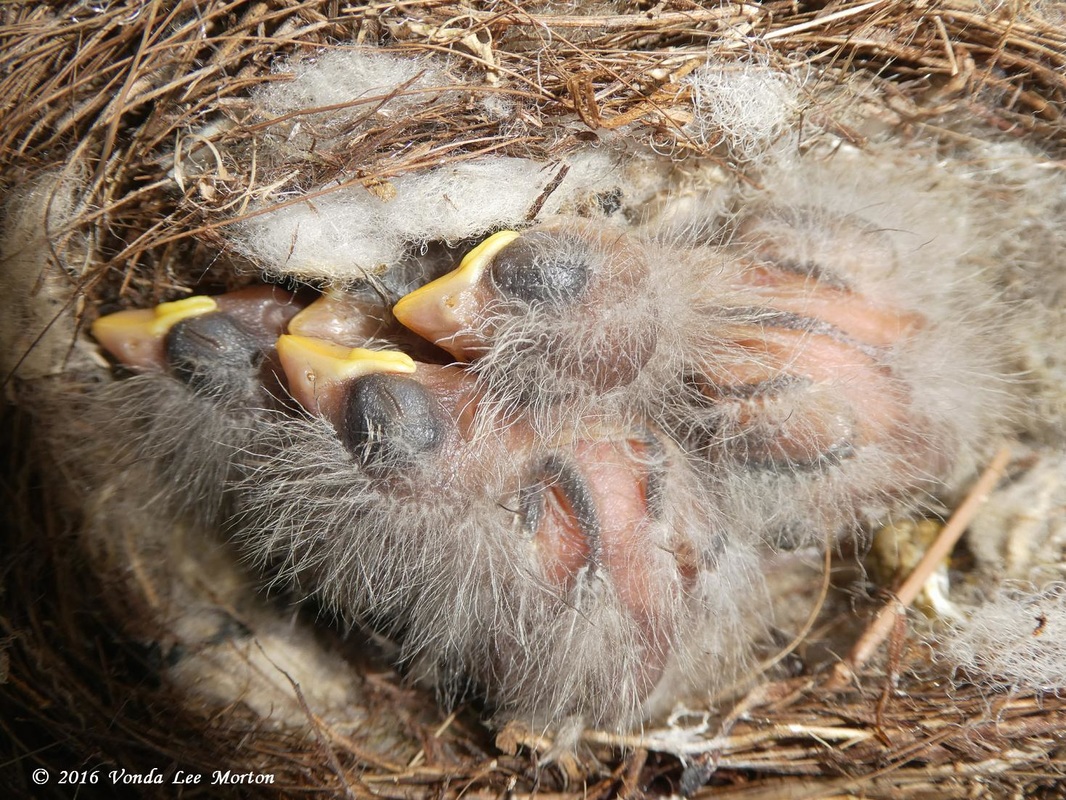
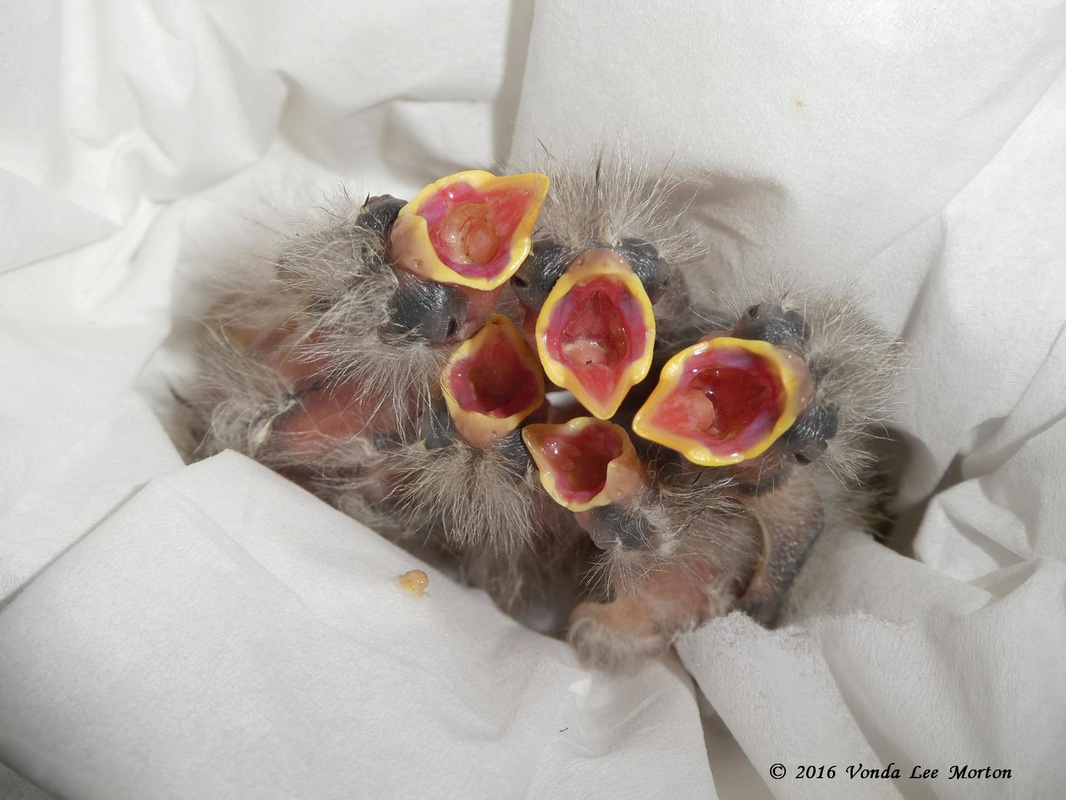
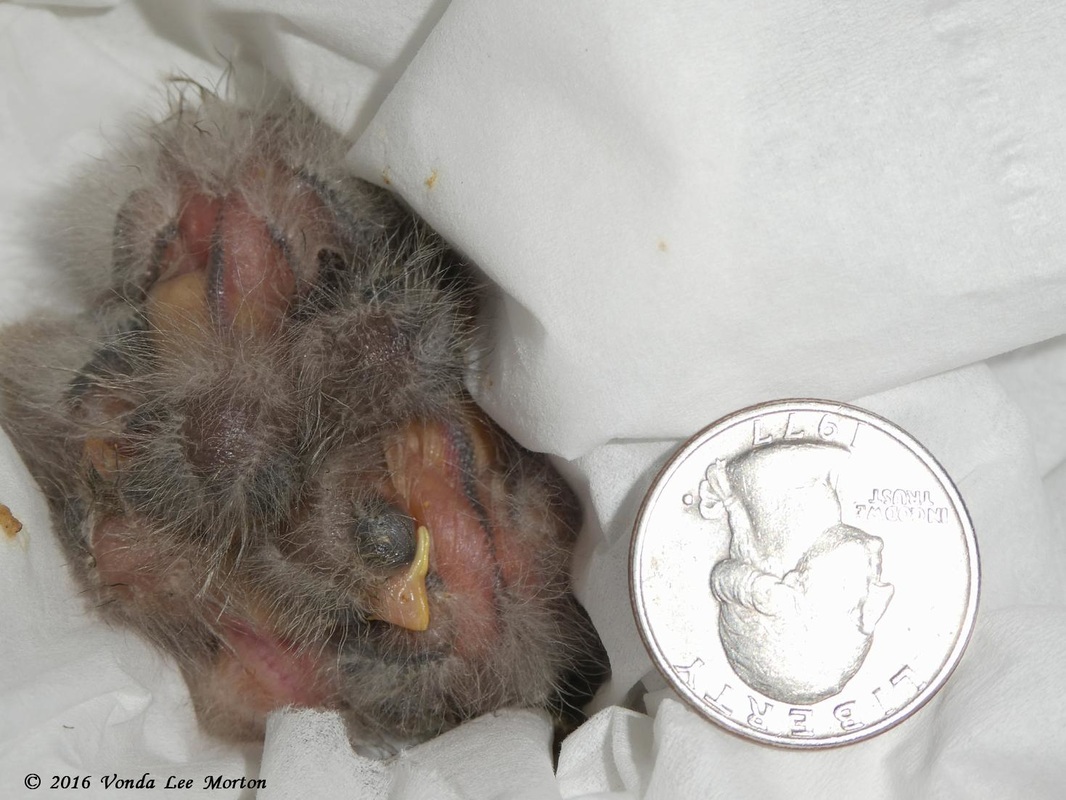
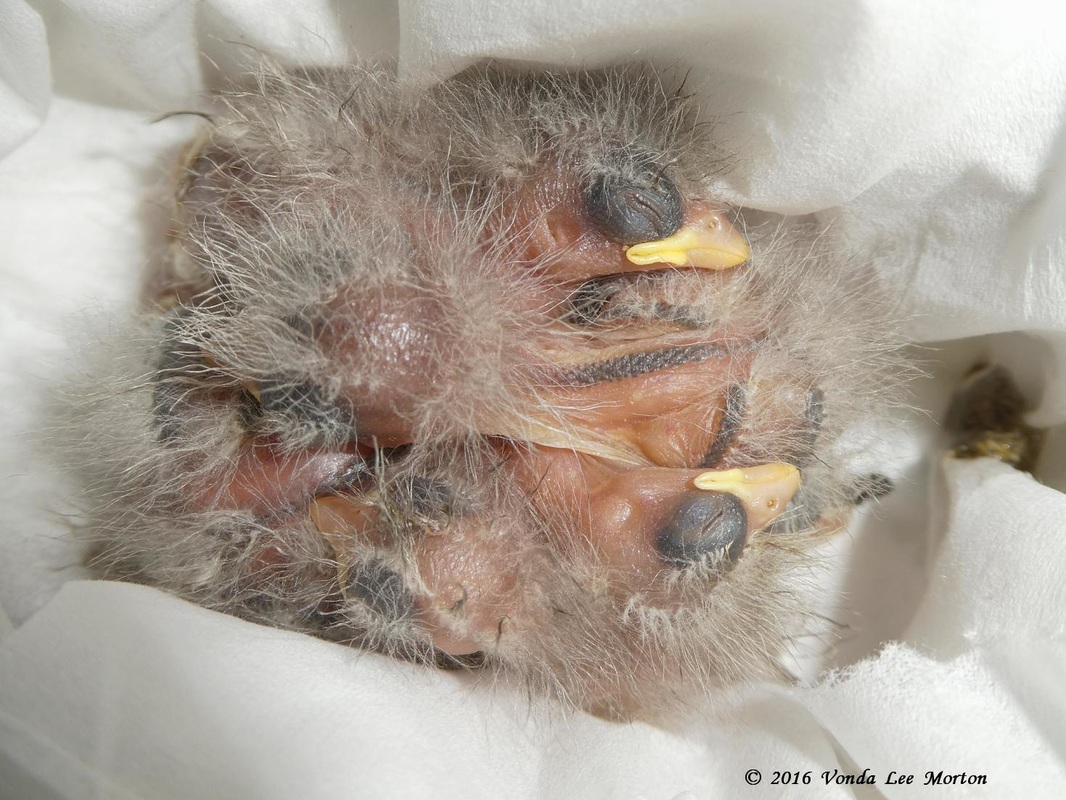
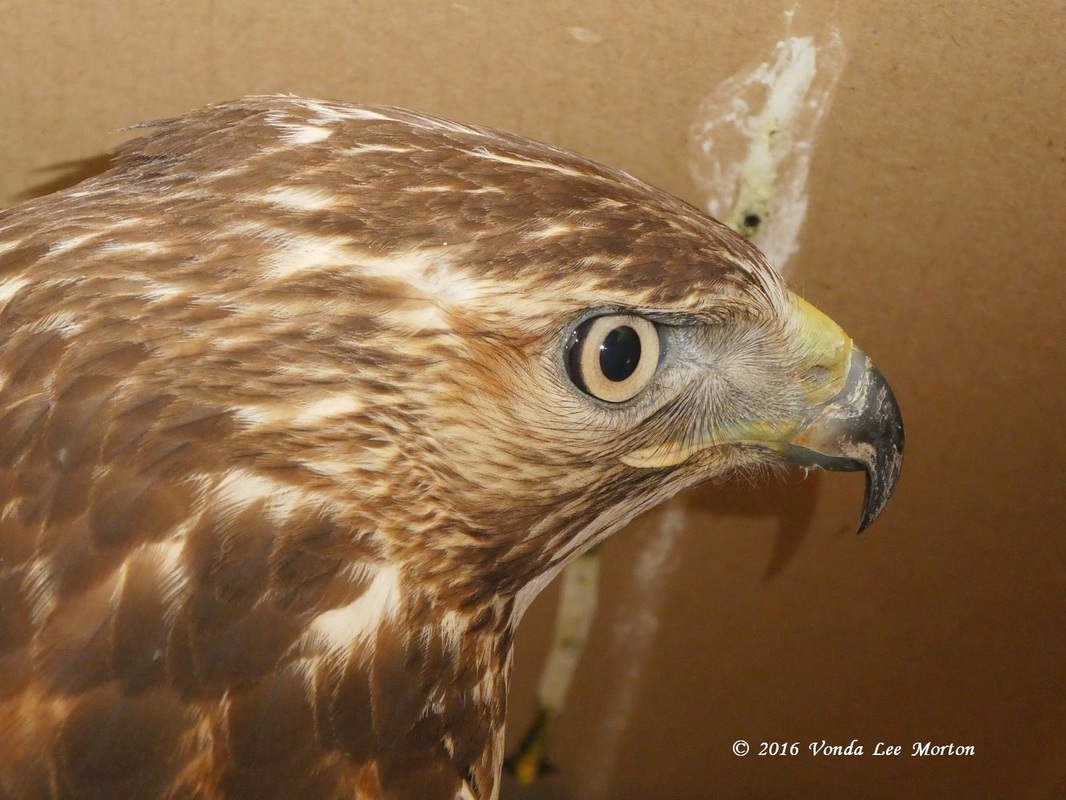
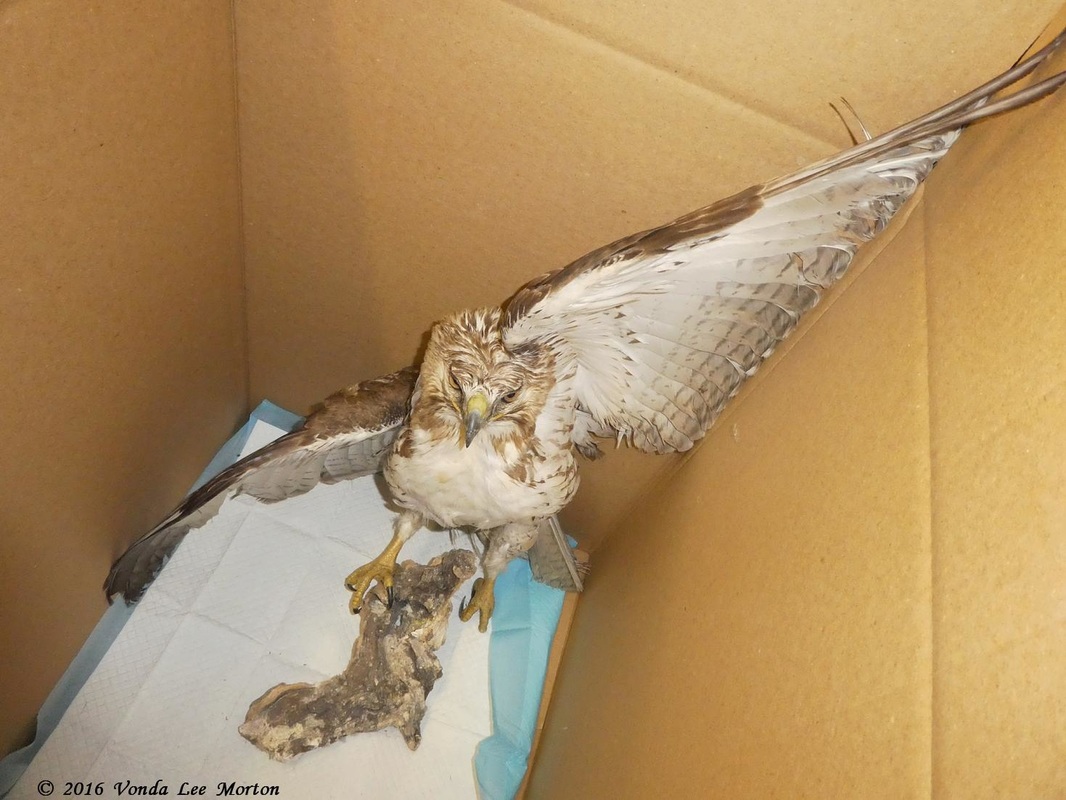
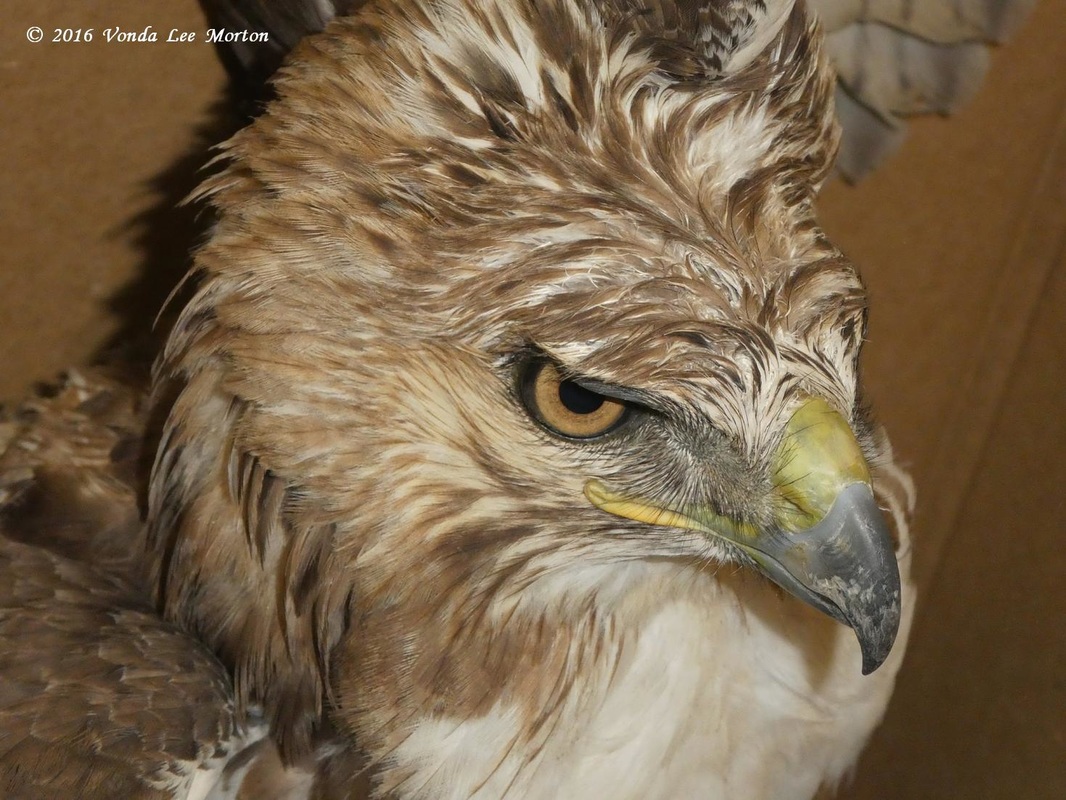
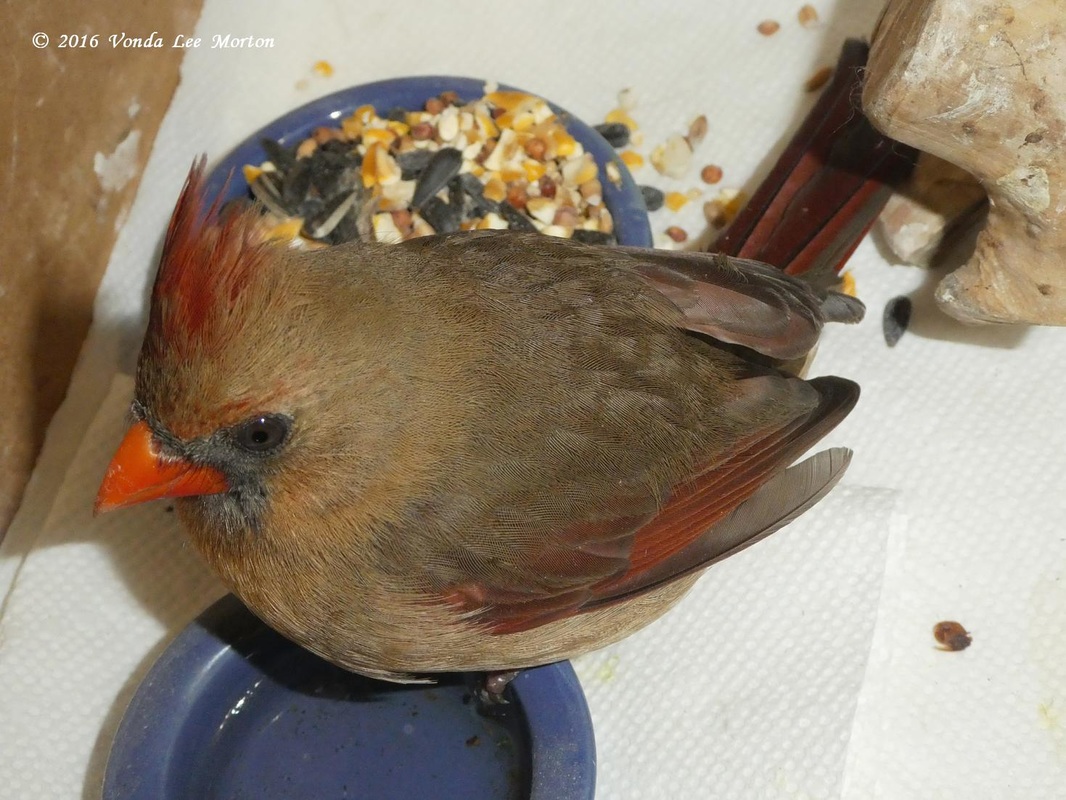
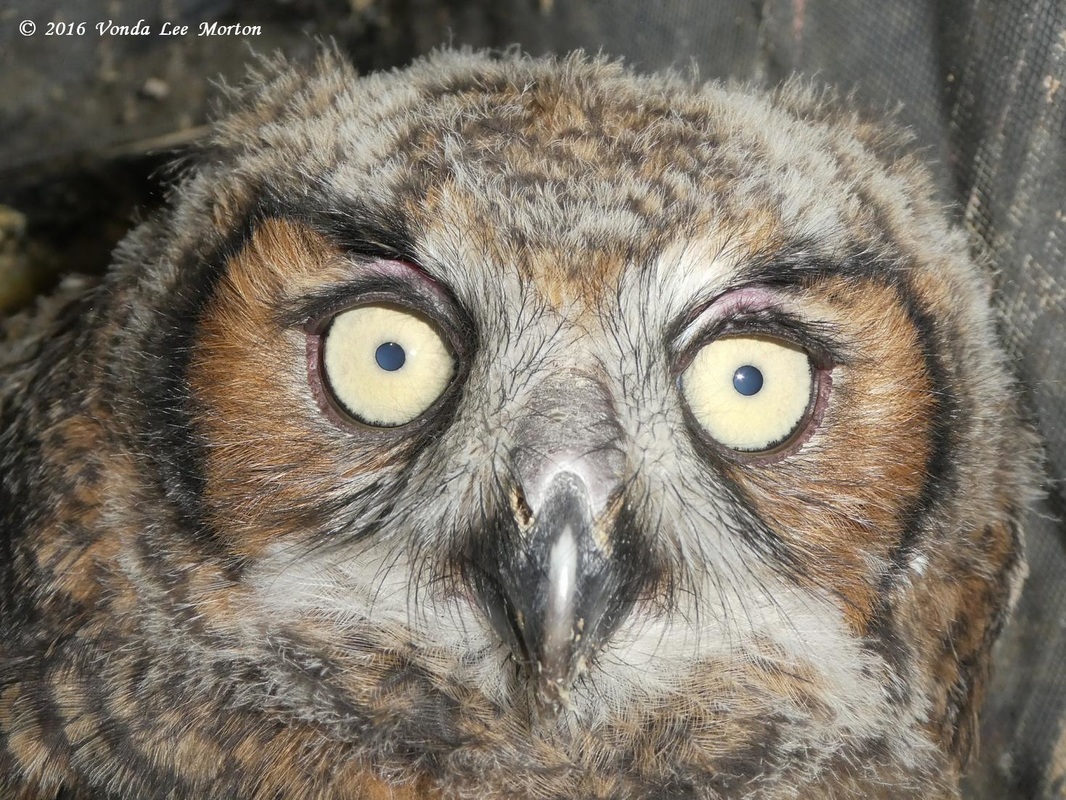
 RSS Feed
RSS Feed
